The mood at the NNWI Forum in London last week was upbeat. Friends and colleagues from many countries saw each other in person for the first time at a physical gathering since Covid struck in 2020. The spontaneous private chats during the breaks, which can’t occur when conversations are only held on screen, were particularly appreciated.
More importantly spirits were raised by the feeling that the nuclear industry’s prospects are now better than at any time in this century. Throughout the day in the London HQ of our hosts Herbert Smith Freehills perched above Liverpool Street station the optimism was unmistakable. The message was clear. Nuclear is on its way back to where it belongs - right in the forefront of the global response to climate change.
In his opening keynote speech King Lee, Director of the World Nuclear Association’s Harmony Programme, highlighted the recent UN Economic Commission for Europe’s study showing that nuclear has lower emissions than any other electricity generation technology.
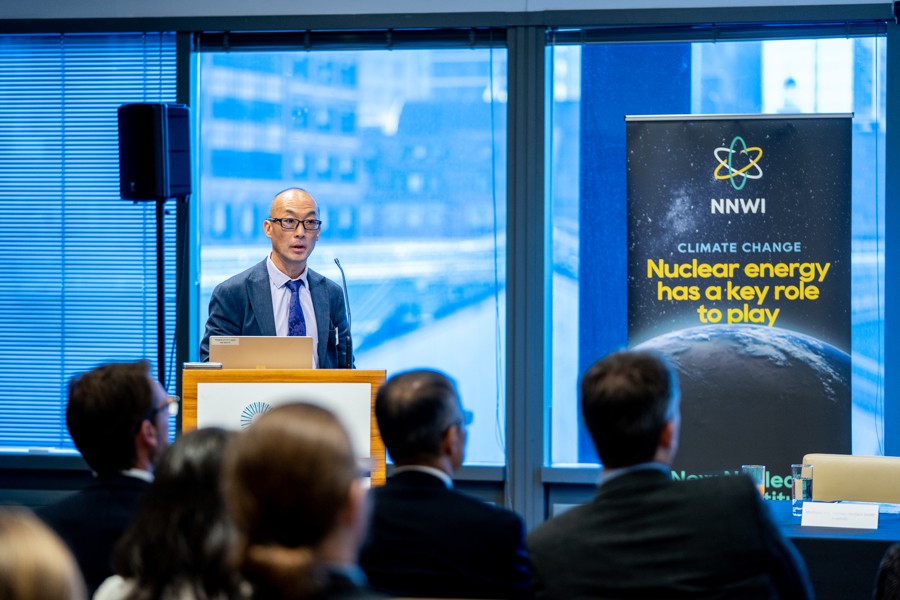
In the Energy Security Panel which followed Yves Desbazeille, Nucleareurope Director General, pointed out how decisions by Germany and Belgium to phase out nuclear power plants are now being questioned in the light of growing concerns about both energy security and climate change.
Keisuke Sadamori referenced the International Energy Agency’s Net Zero Emissions by 2050 Roadmap calling for a doubling of global nuclear capacity and warned that reducing the availability of nuclear power will add $20 billion a year to the cost of reaching net zero.
Ivan Baldwin from Bechtel explained how nuclear is not only the most sustainable technology but also the best for job creation. He went on to provide a valuable reality check about the practical implications of expanding nuclear on the scale now envisaged.
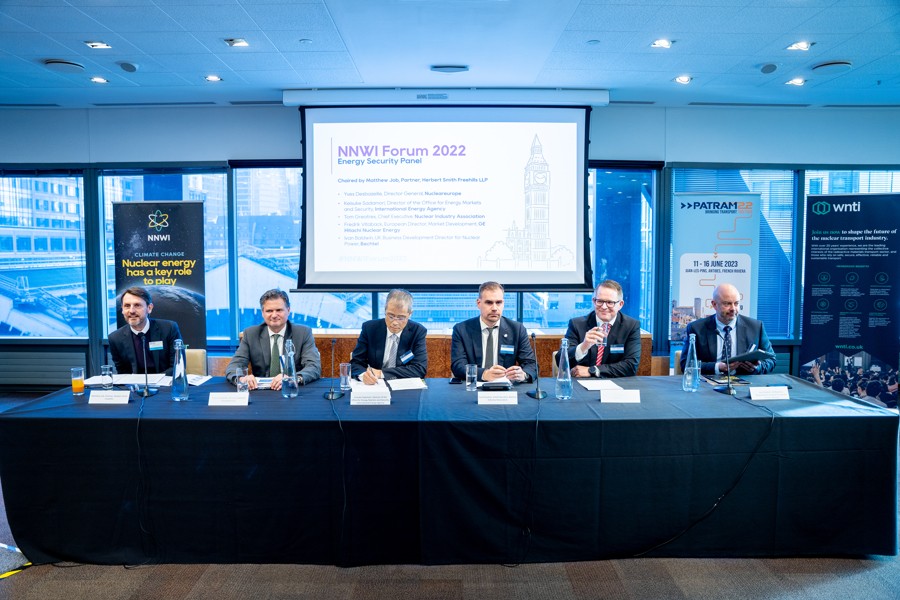
Later in the morning in the Economic Efficiency Panel Antonio Vaya Soler from the OECD Nuclear Energy Agency underlined how using nuclear cuts system costs. Rolls-Royce’s Harry Keeling extolled the advantages of SMRs including the tiny amount of land needed compared to other low carbon technologies and stressed that showing that SMRs can deliver power on time and at costs which are reasonably close to those predicted will be crucial to their success.
Attila Hugyecz, who is responsible for the new Paks II plant, explained how Hungary faces a stark choice between continuing to depend on Russian gas or developing new nuclear capacity, a choice which is made harder by public opposition to new investment in hydro power.
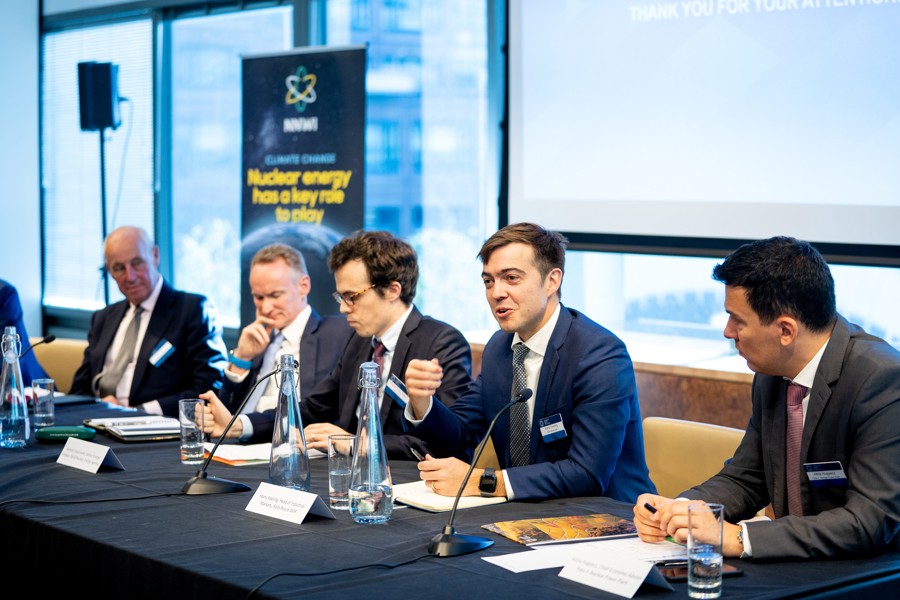
After lunch the Environmental Sustainability Panel was ably chaired by Saralyn Thomas of the Nuclear Institute Young Generation Network. It heard from Rauli Partanen of Think Atom whose thought provoking new book The Age of Energy traces the central role played by energy in relation to economic growth and climate change.
Kirsty Gogan described the exciting new collaboration between TerraPraxis, which she co-founded, and Microsoft. This is aimed at repurposing over 2400 coal-fired plants to run on carbon free energy. Emilia Janisz, Strategy Director at the European Nuclear Society, reinforced the case for nuclear as central to the solution to climate change.
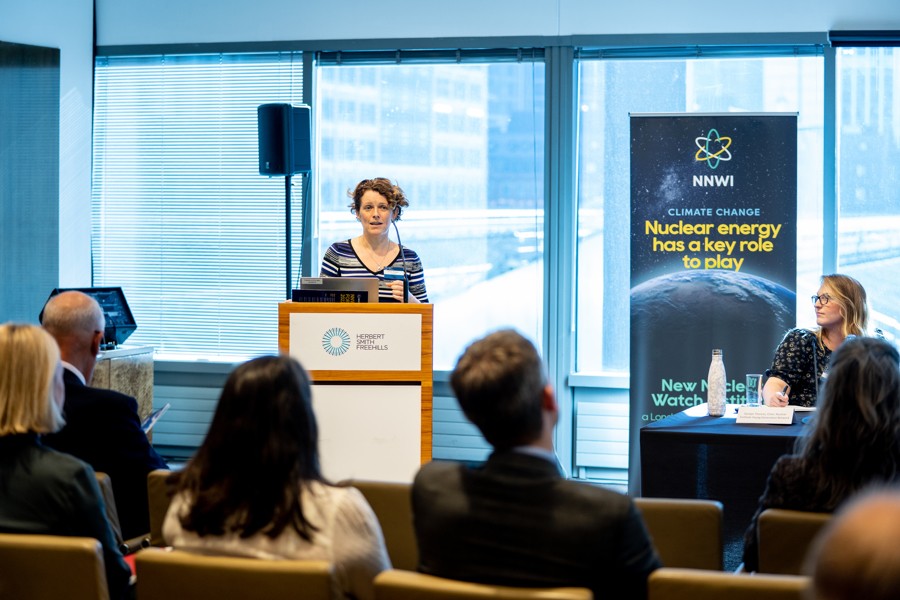
To round the day off the Forum heard from its sponsors. Luc Van Den Durpel trailed a forthcoming publication which will report on recent work by Nuclear-21 of which he is Founding Partner. Martin Porter of the World Nuclear Transport Institute addressed the regulatory challenges relating to the transport of nuclear items where the consequences of an accident are as potentially harmful as one in a reactor.
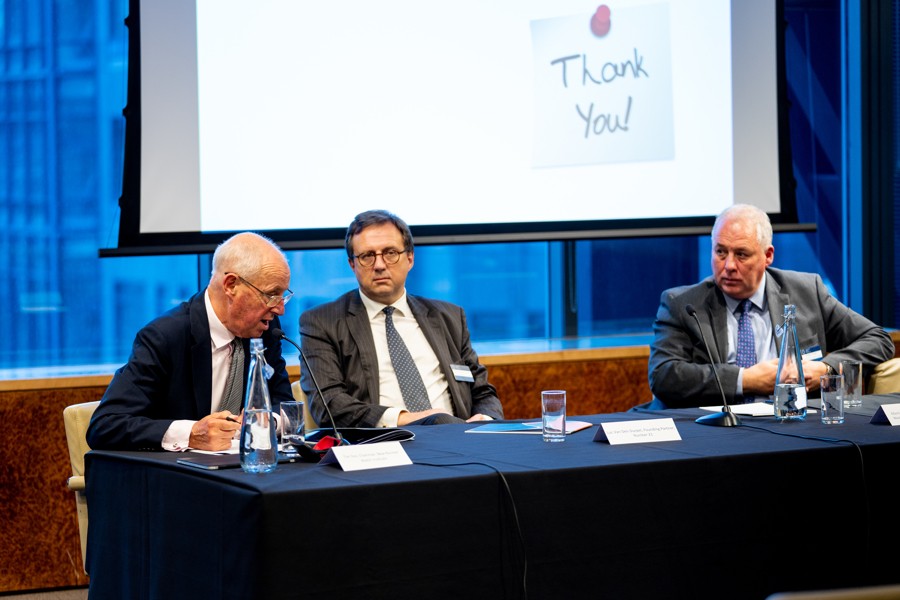
As the the Forum closed with drinks it was clear that participants appreciated how the Panels had addressed not only the most urgent issues facing the nuclear industry but also the wider climate change agenda. Overcoming the world’s short term energy crisis and accelerating the clean energy transition requires urgent international action. The Forum’s discussions pointed the way forward.
NNWI thanks HSF for hosting the Forum and Nuclear-21 and the WNTI for sponsoring it.
Event brochure can be accessed here.







